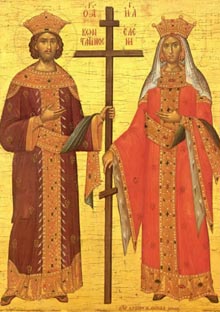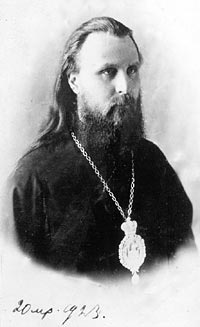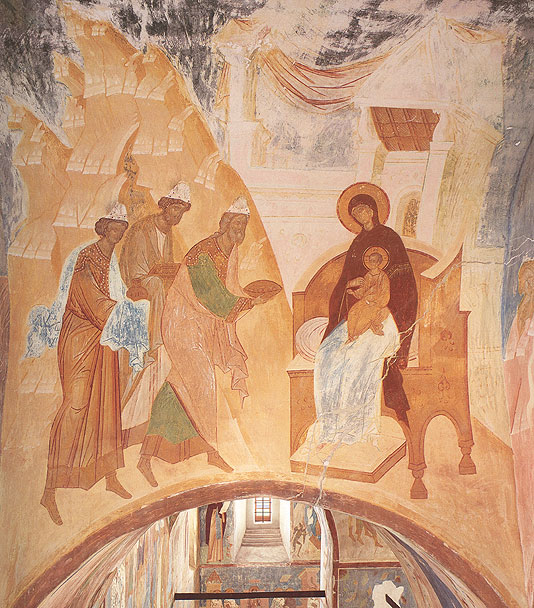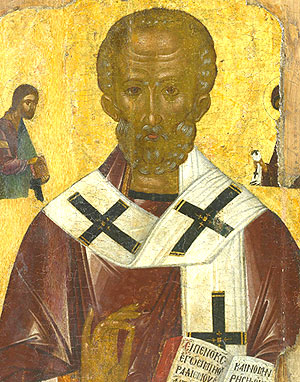Orthodox theology
Feast of the Holy Great Sovereigns Constantine and Helen, Equal to the Apostles
 The Church calls St Constantine (306-337) “the Equal of the Apostles,” and historians call him “the Great.” He was the son o the Caesar Constantius Chlorus (305-306), who governed the lands of Gaul and Britain. His mother was St Helen, a Christian of humble birth.
The Church calls St Constantine (306-337) “the Equal of the Apostles,” and historians call him “the Great.” He was the son o the Caesar Constantius Chlorus (305-306), who governed the lands of Gaul and Britain. His mother was St Helen, a Christian of humble birth.
At this time the immense Roman Empire was divided into Western and Eastern halves, governed by two independent emperors and their corulers called “Caesars.” Constantius Chlorus was Caesar in the Western Roman Empire. St Constantine was born in 274, possibly at Nish in Serbia. In 294, Constantius divorced Helen in order to further his political ambition by marrying a woman of noble rank. After he became emperor, Constantine showed his mother great honor and respect, granting her the imperial title “Augusta.”
Holy Scripture and the Church
 Editor’s Note: The following article was written in 1914[1],when St. Hilarion was an archimandrite and a professor of the Imperial Moscow Spiritual Academy. Its message is especially pertinent for our times, when there is widespread confusion and ignorance about the true nature of Christ’s Church and about the right approach to Holy Scripture. It can provide invaluable help to Orthodox Christians in understanding their Faith more deeply, and in defending and giving an account of it when confronted with heterodox—especially Protestant—claims. At the same time, it can serve as a wake-up call to Protestants, who separate the Bible from the Church, as well as to those Orthodox Christian scholars who have been unduly influenced by the modern “higher criticism” of the Bible which originated within German Protestantism—the fallacies of which are profoundly demonstrated by our modern-day Orthodox apologist, St. Hilarion.
Editor’s Note: The following article was written in 1914[1],when St. Hilarion was an archimandrite and a professor of the Imperial Moscow Spiritual Academy. Its message is especially pertinent for our times, when there is widespread confusion and ignorance about the true nature of Christ’s Church and about the right approach to Holy Scripture. It can provide invaluable help to Orthodox Christians in understanding their Faith more deeply, and in defending and giving an account of it when confronted with heterodox—especially Protestant—claims. At the same time, it can serve as a wake-up call to Protestants, who separate the Bible from the Church, as well as to those Orthodox Christian scholars who have been unduly influenced by the modern “higher criticism” of the Bible which originated within German Protestantism—the fallacies of which are profoundly demonstrated by our modern-day Orthodox apologist, St. Hilarion.
St. Nicholas, Equal of the Apostles and Archbishop of Japan
 Saint Nicholas, Enlightener of Japan Ivan Dimitrievich Kasatkin was born on August 1, 1836 in the village of Berezovsk, Belsk district, Smolensk diocese, where his father served as deacon. At the age of five he lost his mother. He completed the Belsk religious school, and afterwards the Smolensk Theological Seminary. In 1857 Ivan Kasatkin entered the Saint Peterburg Theological Academy. On June 24, 1860, in the academy temple of the Twelve Apostles, Bishop Nectarius tonsured him with the name Nicholas.
Saint Nicholas, Enlightener of Japan Ivan Dimitrievich Kasatkin was born on August 1, 1836 in the village of Berezovsk, Belsk district, Smolensk diocese, where his father served as deacon. At the age of five he lost his mother. He completed the Belsk religious school, and afterwards the Smolensk Theological Seminary. In 1857 Ivan Kasatkin entered the Saint Peterburg Theological Academy. On June 24, 1860, in the academy temple of the Twelve Apostles, Bishop Nectarius tonsured him with the name Nicholas.
The Word Became Flesh. A Sermon on the Nativity of Christ
 The Word became flesh; that is, the Son of God, co-eternal with God the Father and with the Holy Spirit, became human – having become incarnate of the Holy Spirit and the Virgin Mary. O, wondrous, awesome and salvific mystery! The One Who had no beginning took on a beginning according to humanity; the One without flesh assumed flesh. God became man – without ceasing to be God. The Unapproachable One became approachable to all, in the aspect of an humble servant. Why, and for what reason, was there such condescension [shown] on the part of the Creator toward His transgressing creatures – toward humanity which, through an act of its own will had fallen away from God, its Creator?
The Word became flesh; that is, the Son of God, co-eternal with God the Father and with the Holy Spirit, became human – having become incarnate of the Holy Spirit and the Virgin Mary. O, wondrous, awesome and salvific mystery! The One Who had no beginning took on a beginning according to humanity; the One without flesh assumed flesh. God became man – without ceasing to be God. The Unapproachable One became approachable to all, in the aspect of an humble servant. Why, and for what reason, was there such condescension [shown] on the part of the Creator toward His transgressing creatures – toward humanity which, through an act of its own will had fallen away from God, its Creator?
Life of Saint Nicholas the Wonderworker
 'The truth of things hath revealed thee to thy flock as a rule of faith, an icon of meekness, and a teacher of temperance; for this cause, thou hast achieved the heights by humility, riches by poverty. O Father and Hierarch Nicholas, intercede with Christ God that our souls be saved.'
'The truth of things hath revealed thee to thy flock as a rule of faith, an icon of meekness, and a teacher of temperance; for this cause, thou hast achieved the heights by humility, riches by poverty. O Father and Hierarch Nicholas, intercede with Christ God that our souls be saved.'
So reads the troparion of St Nicholas, hierarch of the Church of Myra in Lycia (now Demra in Turkey), known as 'wonderworker' and 'father' throughout the Christian world. He is beloved in the Orthodox Church, and indeed far beyond, for his kindness, almsgiving and aid, meted out both during his earthly life and after. As one of the multitude of English lives of the saint joyously proclaims, 'he is one of the best known and best loved saints of all time.' And in another: 'The name of the great saint of God, the hierarch and wonderworker Nicholas, a speedy helper and suppliant for all hastening to him, is famed in every corner of the earth, in many lands and among many peoples. In Russia there are a multitude of cathedrals, monasteries and churches consecrated in his name. There is, perhaps, not a single city without a church dedicated to his honour.'
The Requiem Office for the Dead (Panikhidi)
The origin of the Service of the Dead (Panikhidi) is as follows: St. Macarius of Alexandria once inquired from the Angels who accompanied him an explanation of the Church's custom to celebrate the third, ninth, and fortieth days after a death by religious services. And the Angel told him: "When, on the third day, the body is brought to the Temple, the Soul of the dead man receiveth from his Guardian Angel relief from the grief which he feeleth at parting from his body. This he receiveth because of the oblation and praise which are offered for him in God's Church, whence there ariseth in him a blessed hope. For during the space of two days the Soul is permitted to wander at will over the earth, with the Angels which accompany it. Therefore the Soul, since it loveth its body, sometimes hovereth around the house in which it parted from the body; sometimes around the coffin wherein its body hath been placed: and thus it passeth those days like a bird which seeketh for itself a nesting-place. But the beneficent Soul wandereth through those places where it was wont to perform deeds of righteousness.

